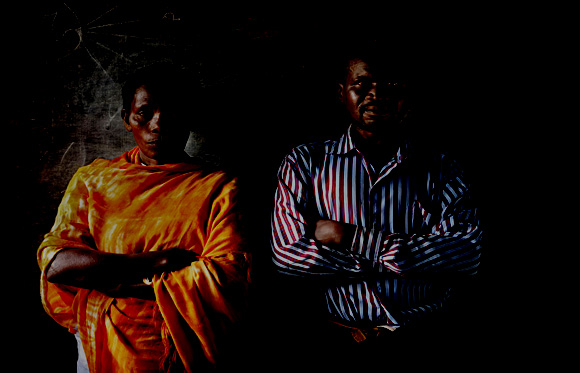
“I coulda been a contender,” a grimacing Marlon Brando laments in the iconic scene in the film On the Waterfront.
I actually am a contender. No, really! Let me explain. The Christian college I attended has a tradition in which a name, Bible verse and hymn is selected for each incoming class. My class name is the “Contenders,” our hymn “Fight the good fight,” and our verse is Jude verse 3:
…contend for the faith that was once for all entrusted to God’s holy people.
Many in our class (me included) considered it all rather lame. Little did I know how significant that word, that verse, that hymn would become in my life. I’ve encountered many formidable battles in my life. Like Jacob, I’ve wrestled with God, not knowing what level of injury, temporary and permanent, I would sustain at the end of each bout. To be sure, living a committed, genuine Christian life is a struggle not for the fainthearted.
One of the tenets I’ve grappled with most in my journey with Christ is the concept of grace. Grace plays a pivotal role in the Christian narrative, and encompasses themes such as compassion, long-suffering, forgiveness, mercy and kindness. In the New Testament, the generally accepted definition of grace (based on the Greek word charis) is: God’s unmerited favor, blessing or kindness toward mankind. It would be impossible to participate in or even understand any part of our faith without grasping its meaning.
God’s grace is not like a human favor, granted in order to elicit a feeling of indebtedness. It is a free gift with no strings attached. However, it does not imply that wrongs committed by the recipient of grace are obscured. Rather, the penalty of the very real transgressions have been suspended.
An Experiment in Grace
God’s grace, which encompasses mercy, lives in perfect balance with justice. We, as limited human beings, find it nearly impossible to balance the two properly. We tend to apply mercy and compassion unevenly, lavishing it on those we love and admire even when correction would be more appropriate, and calling out even the most trivial of trespasses of those who have earned our disapproval. Psychologists define this tendency to favor a set of people with whom we share an identity, whether it is genetic, behavioral, or goal oriented, as “in-group bias.”

A study led by psychologist Mark Levine in 2005 explored in-group bias with interesting results. In one particular experiment, groups of ardent soccer fans rooting for a particular team were asked to complete a questionnaire designed to accentuate their loyalty to their team. They were then told they would go as a group to view some team footage in a nearby location. On their way to the viewing, it was arranged for them to encounter an actor who pretended to fall and cry out in pain. The fan groups were generally found to be far more willing to help the actor when he was dressed in clothing emblazoned with the preferred team’s logo than those dressed in a rival team’s logo.
The experiment was repeated with other fan groups of the same team allegiance who had completed a different questionnaire that emphasized the merits of soccer in general. In this case, the fans were willing to offer aid to those who wore either team’s gear (though more aid was still offered to the preferred team).
In both groups, actors who wore a blank T-shirt were offered aid by significantly fewer members of the fan groups.
Believers are No Better at Grace
Unfortunately, believers are not immune to this type of behavior. Consider the following examples of Jesus’ disciples showing their biases:
- They tried to keep children from “bothering” Jesus. (Matthew 19:13)
- They were indignant at a sinful woman’s act of worship as she emptied expensive perfume on Jesus’ feet and wiped them with her hair. (Matthew 27:6-8)
- They were dismayed at Jesus’ willingness to engage with “contemptible” gentiles, such as the Samaritan woman. (John 4:27)
- They wanted to call fire from heaven to consume unfriendly villagers. (Luke 9:53-54)
- They told non-apostles to stop driving out demons. (Mark 9:38)
In each of these instances, Jesus dispenses stunning grace to those the disciples rebuked. Mercy, forgiveness, compassion, kindness, and love (all attributes of godly grace) flow through him, unhindered. Even with his last ragged breaths on earth he whispers, “Father, forgive them, for they do not know what they are doing” (Luke 23:34).
How do we quell our propensity to create the “us” vs. “them” attitude even among our Christian brothers and sisters who differ in their theology, lifestyle preferences and political leanings? The Bible makes it clear that our “in group” excludes no one. All people are eligible for God’s grace and salvation (Galatians 3:27-29).
For all of you who were baptized into Christ have clothed yourselves with Christ. There is neither Jew nor Gentile, neither slave nor free, nor is there male and female, for you are all one in Christ Jesus. If you belong to Christ, then you are Abraham’s seed, and heirs according to the promise.
For those who are not yet our spiritual brothers and sisters, God displays his yearning that all would be saved as they are equally precious to him (2 Peter 3:9).
The Lord is not slow in keeping his promise, as some understand slowness. Instead he is patient with you, not wanting anyone to perish, but everyone to come to repentance.
How then do we widen our “in group” to include the world? Not easy, is it? Yet it is required of us.
Bear with each other and forgive whatever grievances you may have against one another. Forgive as the Lord forgave you. Colossians 3:13 (NIV)
Humility can provide the proper framework for us in our endeavor. If we fully acknowledge our own desperate need for grace, and internalize how extravagantly it has been poured out on us, then it is easier to share that grace with others. The Bible clearly outlines times when corrective action is needed in the church. Paul writes many epistles doing exactly this. (This is an enormous topic we leave for another day.)
In regard to our individual behavior, though, can we practice humility, recognizing our limited ability to judge our own true motives, let alone the motives and circumstances of others? Can we allow God to correct others rather than feeling it is our personal calling? Can we take responsibility and be at peace with all the future impacts of any corrective actions we might take on others? Perhaps God, in his infinite wisdom, is more qualified to dispense justice.
In order to embody godly grace, we must be willing to change; or failing that, to desire the will to change. When we run out of grace to grant to others, let’s ask for more from God’s never-ending supply.
Grace Extended, Grace Received
My father’s life work was in rescuing Indochinese refugees during and after the Vietnam War. As a teenager, I accompanied him to refugee camps many times, and heard first-hand accounts of unspeakable horror suffered at the hands of the Viet Cong and Khmer Rouge. I remember wondering, even if all the people’s physical needs were met, how could the devastating emotional, spiritual and mental wounds ever be healed?
After the similarly tragic genocide in Rwanda, leaders of that country realized they could never become a functioning state again if their citizens could not move past the atrocities their own friends, family, and neighbors committed against each other. Many groups have come together, Christian and non-Christian, to promote reconciliation. One story recorded in the New York Times describes the travails of Cesaria Mukabutera, a woman whose children were slaughtered in a brutal raid. She somehow found the courage to forgive the murderer after he came to her to ask for forgiveness:
“It took time, but in the end we realized that we are all Rwandans. The genocide was due to bad governance that set neighbors, brothers and sisters against one another. Now you accept and you forgive. The person you have forgiven becomes a good neighbor. One feels peaceful and thinks well of the future.”
The perpetrator describes his experience:
“Mother Mukabutera Caesarea [sic] could not have known I was involved in the killings of her children, but I told her what happened. When she granted me pardon, all the things in my heart that had made her look at me like a wicked man faded away.”
His name? Deogratias—which, translated, is “thanks be to God.” Thanks indeed to God, for grace extended and grace received.

I cannot begin to tell you how far I am from being able to extend this kind of grace to others. I will contend with all my might to express more of God’s grace each day than I have the previous one.
Hymn: Fight the Good Fight, 2nd stanza Author: John S. B. Monsell Run the straight race through God’s good grace, Lift up thine eyes, and seek his face; Life with its way before us lies, Christ is the path, and Christ the prize.
Nina Kylstra. Member of the LifeWay body of Christ for 22 years. Wife of the lovable Eric Kylstra for 30 years. Life-long follower of Christ.
References
Defining grace:
Stories of forgiveness from Rwanda:
- Portraits of Reconciliation
- 25 Years After Rwanda Genocide, Survivors Forgive Killers
- After the Genocide, Author Witnessed How Rwandans Defined Forgiveness
In-group studies:
- Helping Friends and Foes: Why We Help Sometimes and Not Others
- Identity and Emergency Intervention: How Social Group Membership and Inclusiveness of Group Boundaries Shape Helping Behavior
- In-Group Favoritism Is Difficult to Change, Even When the Social Groups Are Meaningless
Hymn: